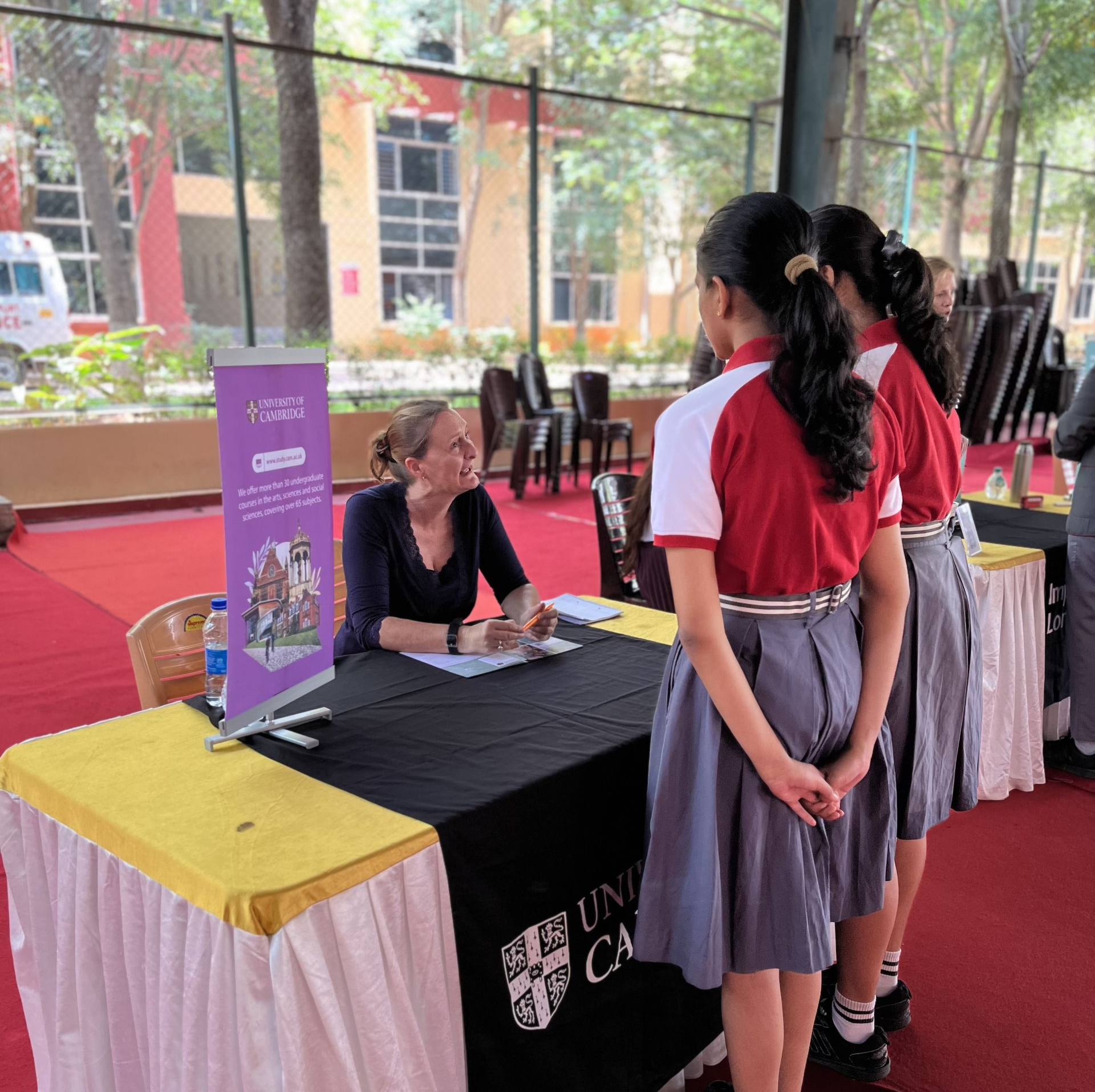As a journalism major one of the first and most important lessons you're taught is newsworthiness, and all of us would have our own mnemonics to remember what makes an item newsworthy, it's so etched in my memory that I have it at the tip of my tongue to date. In my bid to bring you the most newsworthy content, the counselor that first came to my mind, who satisfies all the elements of newsworthiness is Ramya Modukuri. With a two decade career spanning technology, finance and counseling across multiple countries, Ramya brings a highly disciplined, processes-oriented approach to career and college advising. Her specialty lies in helping schools set up their counseling practice and this is what she is currently doing at The Shri Ram Academy Hyderabad, India. In addition to authoring popular articles on counseling, she has presented at 35+ panels and sessions at national and international counseling conferences. I requested Ramya to give our global counselor family insight into a topic that affects all the stakeholders in the counseling life cycle and here are her thoughts:
What Should a Fair Actually Achieve?
4. Encourage students to start planning early—before senior-year panic kicks in.
And What Do Universities Want?
Schools: Let’s Rethink the Madness
2. Prep Before the Fair—Because No One Reads Brochures
3. Make It Personal
4. Try Themed Mini-Fairs Instead of one chaotic mega-event, organize smaller fairs focused on themes. For e.g.:
5. Get Creative: Virtual & Hybrid Fairs
Final Thoughts (a.k.a. Still Throwing Spaghetti at the Wall)
Rethinking the University Fair (Because Chaos Isn't a Learning Outcome)
The vibe is undeniably electric. An auditorium bursting with colorful banners, stacks of brochures (destined to collect dust on the counsellor’s display rack), and a glorious smorgasbord of free pens and keychains. Standees scream “Study Abroad!”, while students meander between tables like real-life Pacmen, devouring knowledge instead of dots. The air crackles with destiny-bending conversations.
Post-event, the school counsellors exchange pleasantries, tote bags, and good vibes with university reps. A social media post follows (#CareerGoals @BestSchoolEver) and just like that, another fair is in the books.
So, what’s the problem?
Let’s Start At the Very Beginning (apparently a very good place to start!)
- Students: Engaged or Just Here for the Swag? Most leave with freebies, not insights. This is especially true for 12th graders who have been attending the “same” fair for the 2nd, 3rd or 4th year in a row often featuring the same universities.
- Counsellors: A Goldmine of Insight (that no one dug into) Counsellors rarely track who spoke to whom, and valuable insights vanish faster than free candy on the tables.
- Universities: Wide-Eyed Optimists or Survivors of the Swag Stampede? Many sigh that students seem as lost as their Wi-Fi signals, wandering the fair either uninterested or overwhelmed. Meanwhile, leads from such fairs often ghost them faster than a bad Tinder date.
Let’s Start At the Very Beginning (apparently a very good place to start!)
What Should a Fair Actually Achieve?
- Increase student awareness of options
- Bust myths—because ranking ≠ quality, and study abroad ≠ bankruptcy
- Help students discover right-fit universities based on:
- Finances
- Majors
- Student life
- Future plans
4. Encourage students to start planning early—before senior-year panic kicks in.
And What Do Universities Want?
- Connect with students who are actually a good fit.
- Strike a balance between feeder schools and new potentials.
- Generate interest that leads to real applications.
Schools: Let’s Rethink the Madness
1. Don’t Just Invite. Curate.
- Use past application data to curate your invite list
- Roll out the red carpet for the fan favourites, the ones popular with your students year after year.
- Choose universities that are “FIT Adjacent” to the faves .
- Toss in a few wild cards - universities so cool they'll make students reconsider their entire life plan
2. Prep Before the Fair—Because No One Reads Brochures
- Hold a pre-fair session to explain why each university is worth exploring.
- Give students a game plan: “Ask about financial aid! Student life!
- Don’t just grab free candy!”Let students suggest what universities they’d like next time AND WHY (forcing them to research!).
3. Make It Personal
- If you have a small cohort, steer each student toward 3-4 universities that suit them.
- Give these universities a heads-up so they can tailor their pitch.
4. Try Themed Mini-Fairs Instead of one chaotic mega-event, organize smaller fairs focused on themes. For e.g.:
- “Study in the UK” (Because “British accents” is not a strategy.)
- “Creative Colleges” (For students who think in colour, not spreadsheets.)
- “NCAA Division I” (Because sporting talent deserves more than just a hi five)
- “Pure Tech Schools” (For the future coding wizards.)
More targeted events = more engaged students = better placement outcomes
5. Get Creative: Virtual & Hybrid Fairs
Not every fair needs to be in-person. If your school has solid tech, set up virtual or hybrid fairs to include universities that can’t visit.Now, let’s talk about the other side of the table…
Universities: Help Us Help You Help Us…
- Read the School Profile Before Attending Check if the student body aligns with your university. No point pitching a $70,000-a-year program at a school focused on affordability.
- Help Counselors Match You with the Right Students If you’ve never received applications from a school, tell them what a strong applicant looks like. They can direct the right students your way.
Final Thoughts (a.k.a. Still Throwing Spaghetti at the Wall)
I don’t claim to have all the answers. Heck, I don’t even claim to have all the right questions. Some of these ideas have been tested, others are experiments waiting to happen. But one thing is clear: if we’re running the same playbook year after year and wondering why nothing changes, maybe it’s time to rewrite it.
Join the Buzz!
Get regular updates, news and more right in your mailbox.
Thank you!


